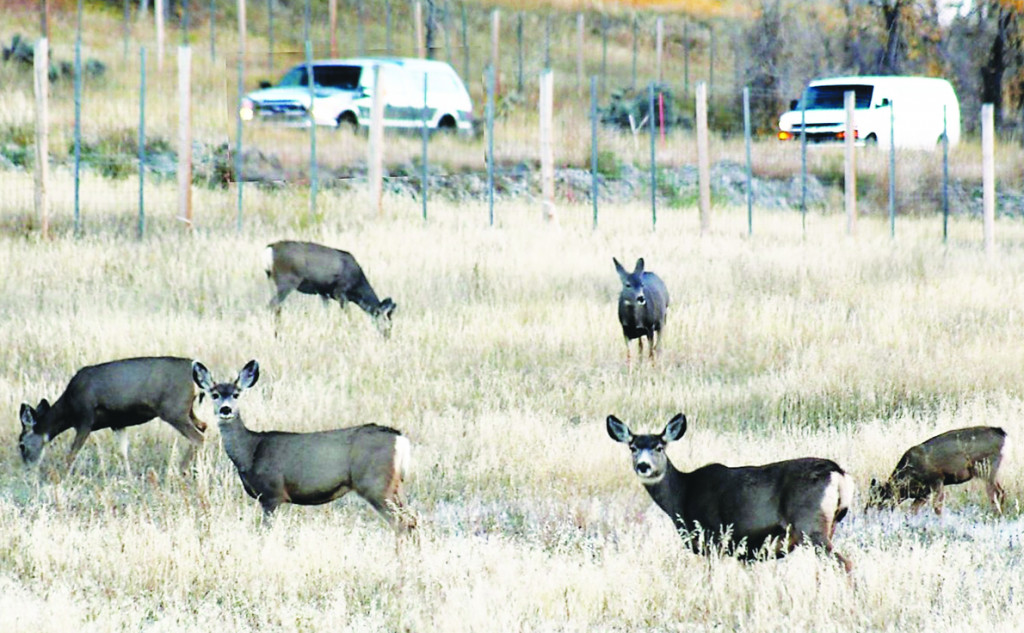Fall migration increases wildlife-vehicle collisions

COLORADO — As spring and summer fade into fall and winter, the migration of wildlife can lead to an increase of wildlife-vehicle collisions during the fall and winter seasons.
Motorists should be aware that wildlife can crossroads without warning at any time of day or night, but drivers should pay particularly close attention in early morning and evening hours. A majority of wildlife-vehicle collisions occur from dusk to dawn, when wildlife are more active and unfortunately more difficult to see.
The following precautions are advised to travelers:
Slow down. Traveling at high speeds increases the danger of a crash. Moderate speeds maintain a driver’s reaction time and allow an appropriate response to animals on or near roads.
Stay alert. Pay close attention to the roadway, particularly while driving between dusk and dawn. This is when deer and other common wildlife are most active and more likely to be crossing roadways.
Flickering headlights from oncoming cars or taillights of the vehicles in front of you, may indicate an animal crossing the road.
Scan ahead. Watch for movement and shining eyes along roadsides. If you see one animal, you should expect it will be accompanied by others.
Obey traffic signs. Many highways have wildlife warning signs intended to alert motorists of known wildlife movement areas. Though incidents can happen anywhere, transportation authority’s attempt to reduce the number of wildlife-vehicle collisions by posting signage and lowering speeds in areas where wildlife are active.
Give warning. When animals are seen on or near the road, slow down or stop (if no other cars are behind you), honk the horn and flash headlights. This warns the animal to avoid the road and alerts other drivers in oncoming vehicles to the potential hazard.
Always wear seat belts. Unfortunately, not every collision is avoidable, and the National Highway and Traffic Safety Administration state that the risk of serious injury and death in a crash is reduced by half when seat belts are worn.
Drivers involved in a wildlife-vehicle collision should report the accident to the Colorado State Patrol by calling *CSP (star key and 277). Should a crash with wildlife occur, remember to slow down and concentrate on retaining control of the vehicle, be aware of your surroundings, especially other vehicles, and move your vehicle to a safe position off the road.



